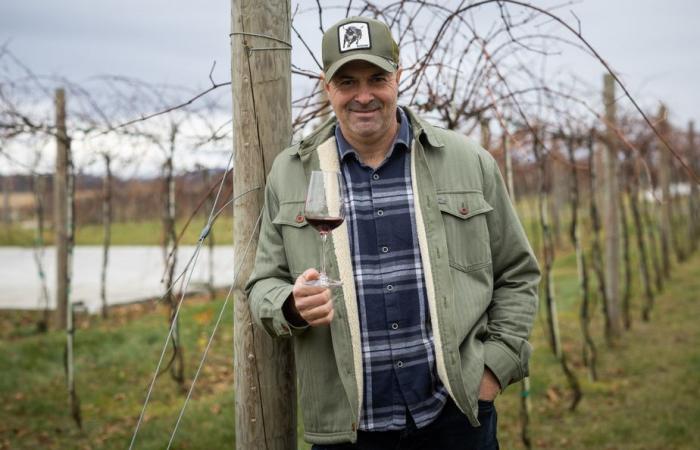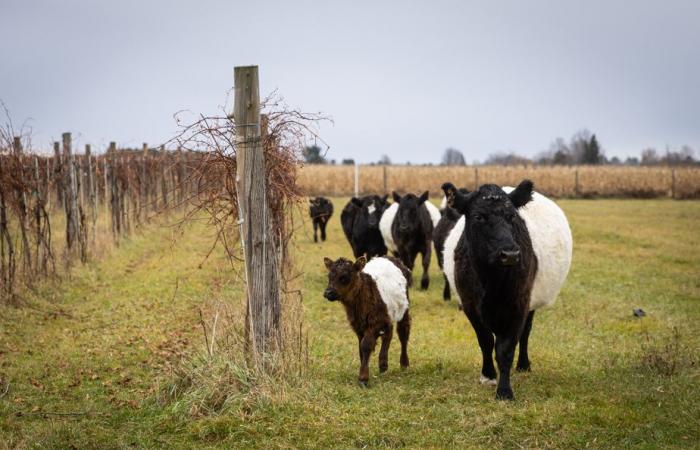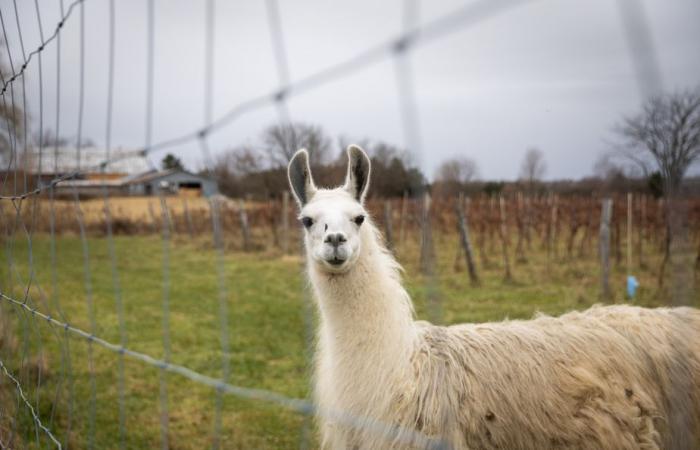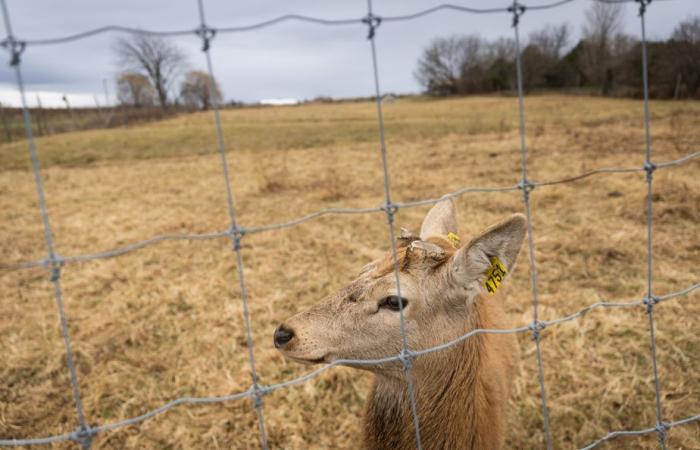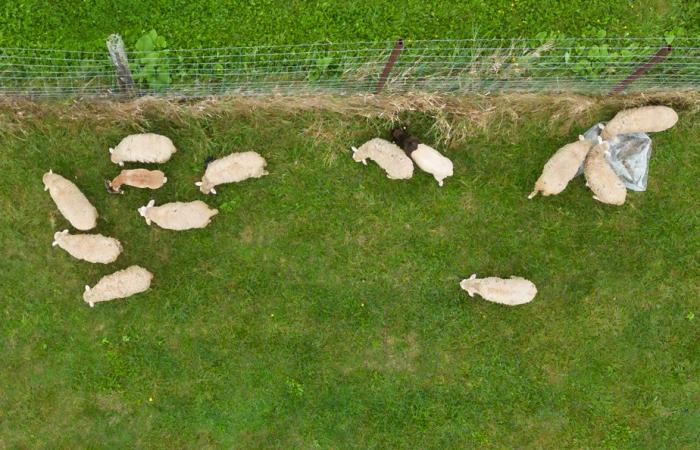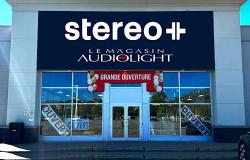Simon Naud is an earth entrepreneur who listens. The family estate, whose first vines were planted in 1986, has always evolved in harmony with the wishes and needs of each era. Today, he is proud to be the first in Quebec to have obtained Regenerative Organic Alliance certification for a vineyard. The health of the soil, that of the ecosystems and that of his community are his current priorities.
Published at 9:00 a.m.
Certification in regenerative agriculture would represent the highest standard in the world in organic farming. The organization that awards it is established in California.
La Bauge, located in Brigham, in Estrie, began its conversion to organic in 2016 and began making natural wines in 2019. The majority of vintages are today produced without oenological inputs, bottled by gravity, without pumping or filtration and without adding sulphites.
“Regeneration agriculture is the stage I have reached in my journey. When I started making the estate’s wines, in 1996, the criticism we had was that the wines were not good. So I tried to make good wines,” says the winemaker, laughing.
“Afterwards, I was told that the wines were too expensive. We therefore tried to have accessible prices. Then the ecological issues became glaring and I made the organic switch. But I quickly realized that organic food wasn’t that ecological. »
The owner of an 8.5 hectare estate explains how he came to this conclusion. “I saw the positive aspects and the negative aspects of organic. Since we do not use herbicides, it is necessary to pass the tractor a lot to control the weeds. Sulfur and copper replace fungicides to combat humidity. We must reapply as soon as it rains more than 10 mm. In short, my tractor was running all the time. That’s a lot of oil and it also means more compaction and destructuring of the soil, more leaching in the vines because the water no longer percolates as before. Finally, with organic, I have the impression of having gone backwards on ecology and soil health. »
What would be the next step for Simon Naud, who is always looking to do things better? The farmer being also a breeder from father to son, he began his new approach without even knowing that regeneration agriculture existed, by mixing his two passions, animals and vines.
-
PHOTO SARAH MONGEAU-BIRKETT, THE PRESS
Simon Naud raises oxen for meat.
-
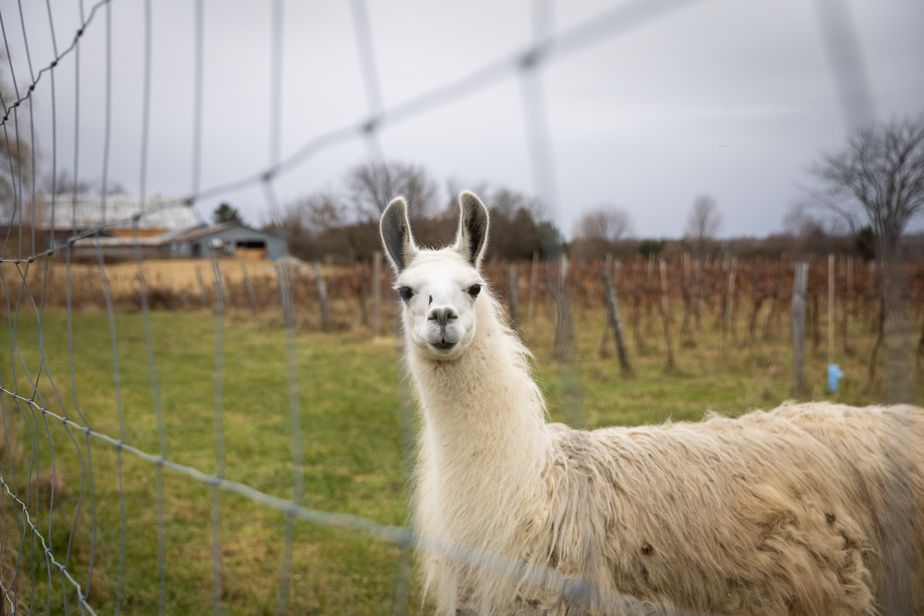
PHOTO SARAH MONGEAU-BIRKETT, THE PRESS
The llamas replace the sheep when the latter are returned to their owner, after having grazed all summer in the vineyards of La Bauge.
-
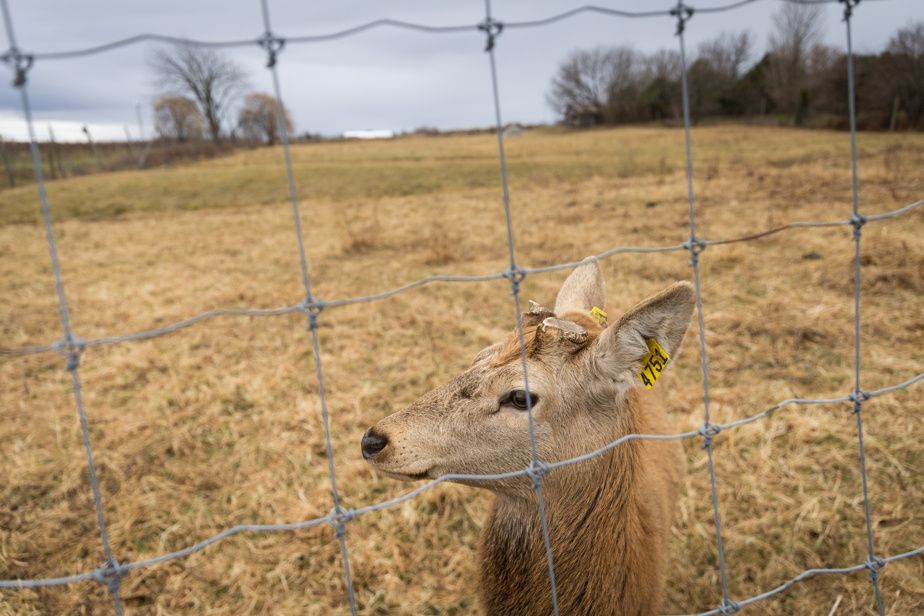
PHOTO SARAH MONGEAU-BIRKETT, THE PRESS
There are also deer.
-
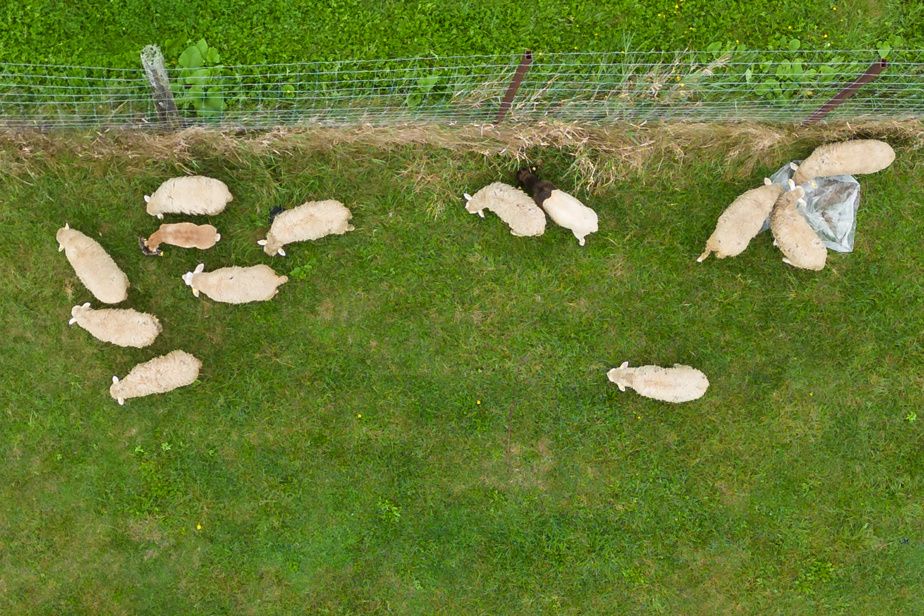
PHOTO DENIS GERMAIN, SPECIAL COLLABORATION
Sheep replace the tractor in La Bauge.
1/4
“My first gesture was to integrate the animals. As the majority of my vines are raised, i.e. the 80% which are resistant Nordic grape varieties, the bases of the vines can easily be “cleaned” by animal grazing. In addition, the sheep leave manure at the foot of the vines, which helps nourish the plants. This means that I now use the tractor between 14 and 16 times less in my rows each year. »
We can say that for these reasons and others that we will not list here, the first of the three axes of regenerative agriculture (also called regenerative agriculture), namely soil health, is covered. The second, the vitality of the vineyard and surrounding ecosystems, posed other challenges.
“Biodiversity in the vine is not easy since it is a monoculture. But we planted other trees, groves. We installed bird nesting boxes, which encouraged the birth of more than a hundred swallows which rid the vines of harmful insects, just like bats. We have restored biodiversity to create a healthy and favorable environment for our cultural allies. »
Finally, the third essential element for certification in regeneration agriculture concerns the community. Simon Naud is a welcoming and very good-natured man. He advocates teamwork and the development of his employees. It also offers its equipment to new winegrowers and takes on interns, thus enabling the training of the next generation of winemakers.
At the end of all these steps, it is clear that certifications are piling up for those who must now deal with organic, Protected Geographical Indication (PGI) Vin du Québec and regenerative. The latter particularly appeals to him because it is the only one that includes a physical examination of the vineyard, to test the vitality of the soil.
“I am not a fan of certifications, but I feel the need to certify because a lot of things are said in “reasonable” viticulture which are not very verifiable. I want to be able to say with a clear conscience that we are doing things well,” concludes the winemaker.

